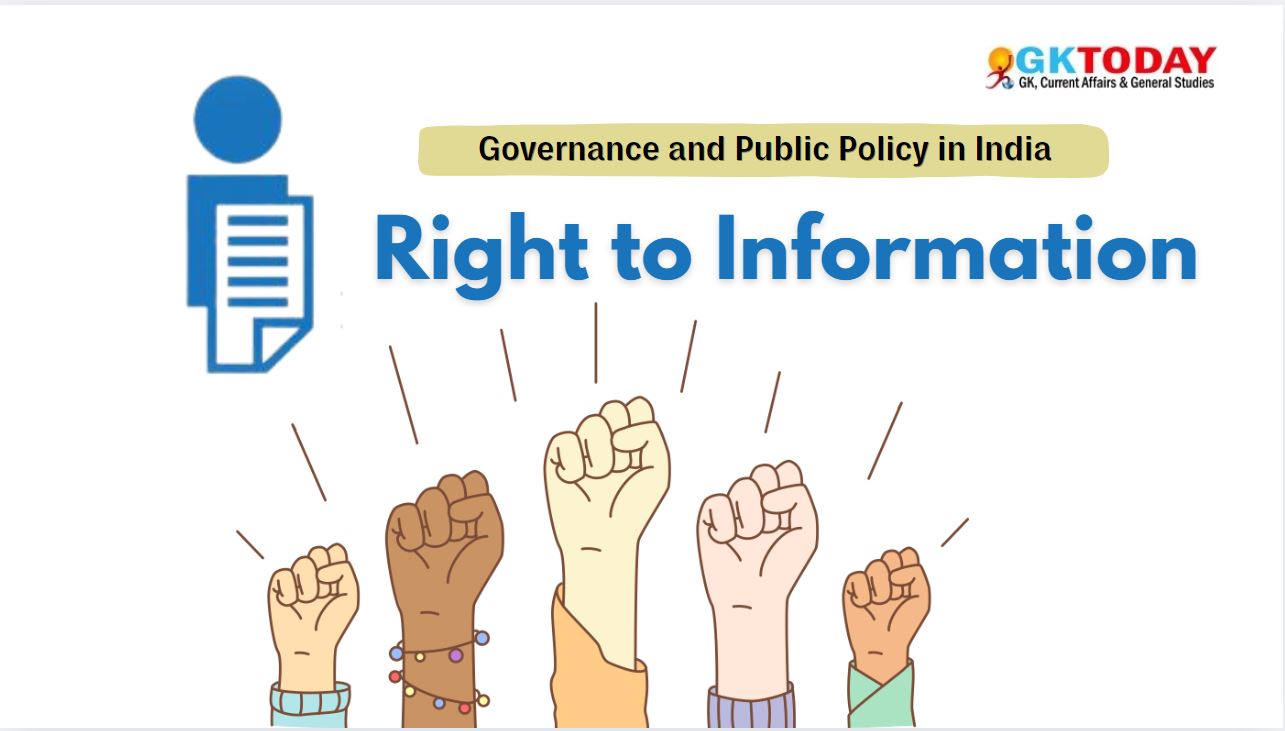Right to Information in India – UGC-NTA NET Political Science
The Right to Information (RTI) is legislative measure in India that empowers citizens to access information held by public authorities. It aims to encourage transparency and accountability in governance. The RTI Act, enacted in 2005, serves as a mainstay for good governance in the country.
Introduction to Right to Information
The Right to Information is a fundamental right under Article 19 of the Constitution of India. It allows citizens to request information from public authorities, thereby promoting transparency. The RTI Act, 2005, was a landmark legislation that revolutionised the relationship between the government and citizens.
Legal Framework
The RTI Act was enacted on June 15, 2005. It provides a structured mechanism for citizens to access information.
Key Features
- Citizens can request information from public authorities.
- Public authorities must respond within a stipulated time frame.
- Establishes the Central Information Commission (CIC) and State Information Commissions (SICs).
Scope of RTI
The RTI Act covers all levels of government and bodies substantially financed by the government.
Public Authorities Covered
- Central Government
- State Governments
- Local Bodies
Information Accessible
Citizens can access various types of information, including:
- Records and documents
- Opinions and data
- Policies and decisions
Process of Filing RTI Application
Filing an RTI application is a straightforward process.
Application Submission
Citizens can submit an RTI application either in writing or electronically.
Fee Structure
The application fee is minimal, typically ₹10 for general requests.
Time Frame
Public authorities must provide information within 30 days. For matters concerning life or liberty, the response time is reduced to 48 hours.
Exemptions
While the RTI Act promotes transparency, certain exemptions exist.
Categories of Exemptions
Information may be withheld in cases involving:
- National security and sovereignty
- Personal privacy
- Confidential information from foreign governments
- Commercial confidence and trade secrets
Public Interest Override
Even if information falls under exemptions, it can be disclosed if it serves the public interest.
Information Commissions
The RTI Act establishes a framework for monitoring its implementation.
Central Information Commission (CIC)
The CIC is headed by the Chief Information Commissioner. It oversees the enforcement of the RTI Act at the national level.
State Information Commissions (SICs)
Each state has its own SIC to handle RTI appeals and complaints, ensuring local governance accountability.
Role of RTI in Good Governance
The RTI Act plays a vital role in enhancing governance.
Transparency
RTI enhances openness in government functioning. Citizens can scrutinise government actions effectively.
Accountability
The act holds public officials accountable for their decisions and actions, reducing corruption.
Empowerment
RTI empowers citizens by providing them with the tools to seek information and participate in governance.
Challenges and Issues
Despite its successes, the RTI Act faces several challenges.
Awareness
A portion of the population remains unaware of their rights under the RTI Act. This lack of awareness limits its effectiveness.
Bureaucratic Resistance
Some public officials resist providing information, citing various reasons. This resistance undermines the spirit of the RTI.
Misuse of RTI
Instances of RTI being used for harassment or personal vendettas have emerged. This misuse can discredit the act.
Safety of RTI Activists
RTI activists often face threats and violence. Ensuring their safety is crucial for the continued success of the RTI movement.
Amendments and Developments
The RTI Act has undergone several amendments since its inception.
Amendments to RTI Act
The 2019 amendment reduced the tenure and salary of Information Commissioners. This change raised concerns about the independence of the commissions.
Judicial Interpretations
The Supreme Court has issued various rulings that clarify the scope and application of the RTI Act. These interpretations have shaped its implementation.
Impact of RTI
The RTI Act has had a deep impact on governance in India.
Case Studies
Numerous successful RTI applications have led to policy changes and exposure of corruption. For example, RTI applications have uncovered irregularities in public spending and service delivery.
Public Participation
RTI has increased citizen engagement in governance processes. More citizens are now involved in decision-making.





